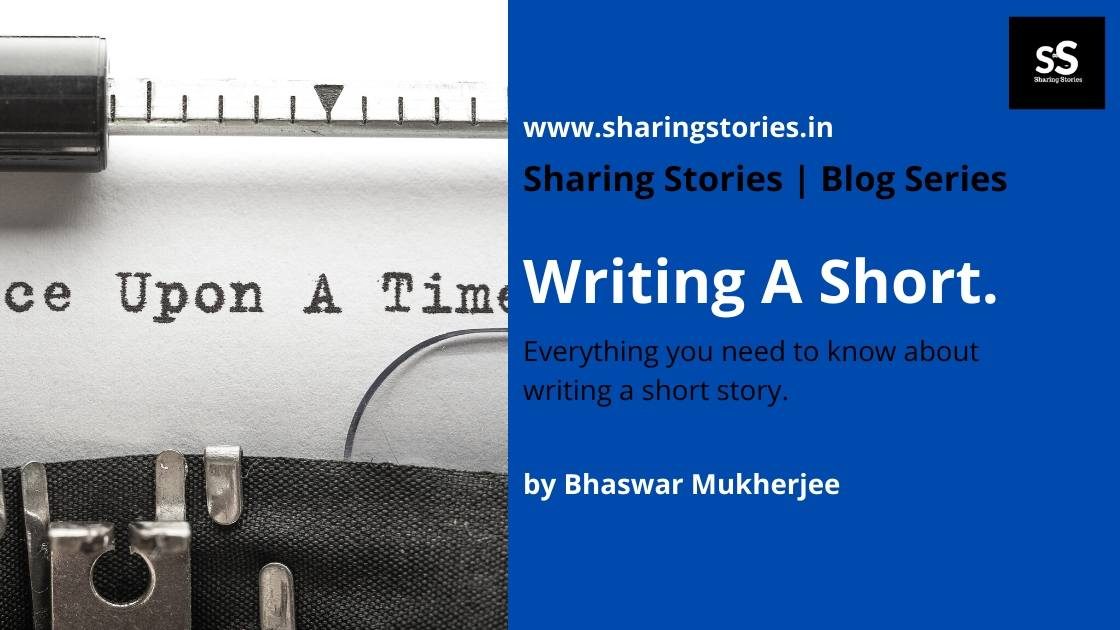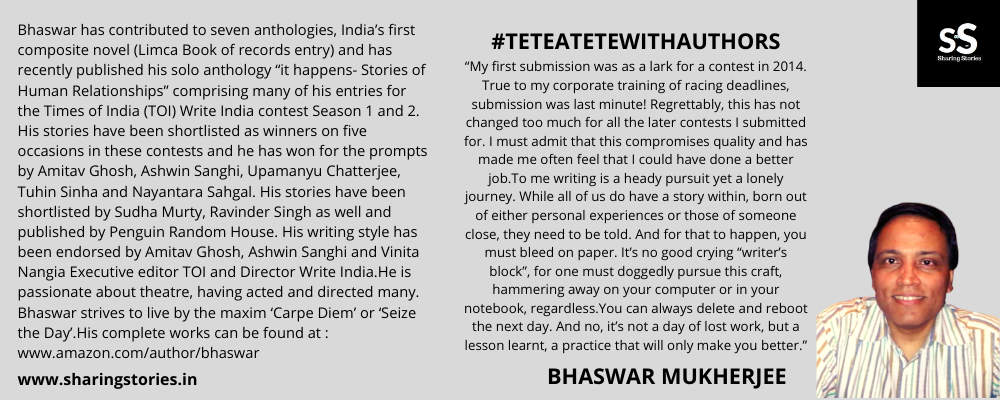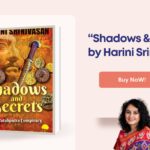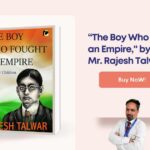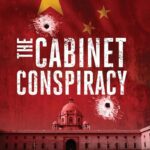Writing a Short | Everything you need to know about Short Story writing | Part 2
Writing a Short
(Part 2)
Continued….
Last week we introduced the mind-boggling types of short fiction based on the word count. You would agree that in many forms, articulation at best can be only a random thought, an inspiring idea or a piece intended to shock and awe.
We also introduced the ten elements I see as the essential ingredients that need to mix well in the cauldron of short story writing. In case, any of you are scrambling/scrolling to retrieve these, here they are:
- External rules and framework
- Story setting and research
- Your characters
- Conflict and Plot
- Plan
- Style
- Minimalism
- Conclusion
- Title
- Editing and revisiting
Since we have already discussed the first three, we will start this post with the fourth and work our way to the end.
The Conflict and the Plot. I cannot overemphasise the importance of your main character (at least) having an internal or external conflict or both. An internal conflict refers to a latent and internalised emotion, a struggle, an uncertainty of choice brought upon by the past, or an event or a stimulus. Such an event or stimuli may well be your external conflict! A quick example could be extreme penury instigating your protagonist to commit a heinous crime against which her/his innate morality protests. An internal conflict thus is when a person is at war with her/himself. An external conflict is when the struggle is directed at another story character, nature, or some outside influence. Most writers would have an internal conflict but may or may not have an external conflict. Very often the internal/external conflict drives the plot.
Plot is the arc which your story takes. It is “what happens” when your characters’ motivations drive them to action. So, once you have your premise, setting, character(s), plot is the culmination of your story ideation. Please be careful with too much of a back story. Though it may be germane and perhaps necessary to justify your characters’ motivation or internal conflict, unless your style is glib, it may detract the reader from the main plot and eat up your word count.
Fifth the plan. Sure, it is important to have a plan or the blueprint for how all the above elements will play out. Will the conflict of the character have a resolution? Will the story have a larger message for people or a commentary on cultural mores? How will it end? How will all this happen within the confines of a story count? Will it be necessary to sacrifice someone or something to do so? Have all the loose ends been tied up? Don’t fret if you find the plot leading you on, rather than your plan. Having your muse take you by your hand or being able to inspire you to deviate from the template happens often and that is what I would call a writer’s creativity!
Sixth, the style refers to the literary technique you use to narrate your story. It is the eclectic mix of language, diction, sentence framing and paragraph style which is essentially is an author’s personality. It is like the plating of the dish you have cooked for your readers. You may love an author’s expertise of narration or description or exposition; you may wish to have a mix of different styles. Yet remember that you have a signature, a unique style of writing. It’s a folly to imitate another’s style. The style should have a pleasing lilt and not jar the reader’s senses, so write as it comes naturally. Do not however be scared to experiment outside your comfort zone. Do not be scared to try out new structures, new tones, or moods or even genre in which you deliver your story. Sometimes, when we move out of our comfort zone, the possibilities are endless. And who knows, you may discover your mojo! To be honest, this is an area for my personal improvement.
Seventh, Minimalism. Never doubt the reader’s intelligence. Keep the mystical element at the back of your mind. Writing a short story is a bit like weaving magic with more show and less tell. Let the reader’s imagination and thought process guess what will happen next, rather than your spelling it out all. Less is more. This will help in the word count too!
Eighth, Conclusion. The end should surprise. It is the unexpected twist in the tale that makes a story memorable and demonstrates intelligent ideation. Your style, plot, characterisation, setting, are all important, but this is key. A sledgehammer ending will be remembered and engraved in a reader’s heart forever. Be careful though. It just cannot be bizarre and totally out of context just to electrify the reader. The reader must not be left with a feeling like the one s/he would experience in discovering and insect at the bottom of her/his glass of her/his favourite drink! The other thing about a conclusion I personally recommend is being definitive. A resolution (or a pointer towards it) of the internal or external conflict is important. An ending which the reader may agree or disagree with but acknowledges some form of closure. A finale which gladdens (or saddens) the heart or invigorates the mind. Having an artsy ending, vague and undefined is not what I like. Appears that the writer is not really in control of the narrative.
Ninth, give your story a title that grabs the reader. It is your first hook.
Tenth, Edit. Yes. Edit, edit, edit. Revisit for inconsistencies and infractions. Regrettably, writers are poor proof-readers. Also, if you return because you are unhappy with one or more elements of the story, it’s a good sign.
A story within a predetermined number of words lays bare the writer’s virtuosity or otherwise. I believe that it was Sarah Dunant, the famous British novelist who said, “There’s no place for the writer to hide in a short story, no room for failure, for sloppy writing or muddled thought.”
Finally, we always remain an apprentice in this school of writing. There will always be a better story than the one we spin. And even for the one spun, which we believe to be the finest example of our craft, an improved version.
-Bhaswar Mukherjee
(Contact: fb: https://www.facebook.com/m.bhaswar/ intsa/twitter-@bhaswarview. Gmail: m.bhaswar@gmail.com)
- Bring Your ‘Book to Life’ Using AI.
- Total cost of Publishing a Book
- Book Review of “Shadows & Secrets” by Harini Srinivasan
- In Conversation with the Author of the Book “The Boy Who Fought an Empire,” by Mr. Rajesh Talwar
- Book Review “The Cabinet Conspiracy” by Jigs Ashar
